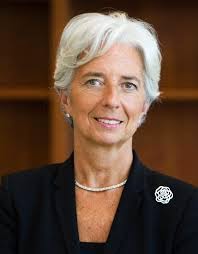The 2014 Arcturus Christmas Banking Quiz
So you think you know about banking? Just for fun, test your knowledge with this quiz. If you are a regular reader of this blog and My World of Plastic, you won't have any trouble!
All the answers are given at the end of the quiz, but no peeping!
1
In Banking parlance, what do the initials NSFR stand for? .
2 In which country was the world's oldest
bank founded?
3 What
was the name of the so-called ‘Crystal Methodist’, the disgraced Non-Executive Chairman of the Co-op Bank who was
forced to resign his post in June
2013 after a sex and drugs scandal involving cocaine, methamphetamine, rent boys and sex in a public toilet?
4
What do the letters ATM stand for?
5 What
well-known Hollywood actor played the part of disgraced banker Jordan
6 What
term is used to describe the monetary practice, sometimes resorted to by central banks in times of crisis, to to kick-start a flagging economy with a cash injection?
7 One of the first acts by new Bank of
England governor Mark Carney was to announce
a new design for the British £10 note. Which famous novelist is to replace
Charles Darwin in the design?
8 What
is the connection between the carob bean and banking regulation?
9 Who
is the current Managing Director of the International Monetary Fund (IMF)
10 In
Three Men in a Boat by Jerome K Jerome, which one of the three friends works in a London bank?
11 In
a banking context, what do the letters LCR stand for?
12 What
is the Wall Street Reform and Consumer Protection Act, President Obama's financial reform bill of 2010, more
commonly known as?
13 What
American bargain-store chain was infamously hit by a massive data security breach on Black Friday in 2013?
.
14 In
the classic Frank Capra Christmas movie It’s
a Wonderful Life, what is the name of
the family-run bank that nearly goes under, when loyal but absent-minded employee Uncle Billy manages to lose
the day’s takings on the same day as the Bank
Examiner turns up to look at the books?
15 And,
in the same film, what are the two alternative names of the small town where the action takes place?
16 When
the United Kingdom
17 What
is the name of the central bank for the USA
18 In
Islamic Law, Muslims are forbidden to make unjust profit in trade or business. What term is used to describe this sin,
often translated into English as ‘usury’?
19 Founded
in 1857, it was renamed BSCH in 1999. What has this well-known financial institution been known as since
2007?
20 In 1995, which bank collapsed in a scandal
involving rogue trader Nick Leeson?
Answers
1 Net Stable Funding Ratio. A
Basel Committee standard, the Net Stable Funding Ratio seeks to calculate the proportion of a bank's long term assets
which should be funded by long term, stable
funding
2 Italy: Monte dei Paschi di Siena
3 The
Reverend Paul Flowers. In the wake of this scandal the fortunes of the Co-op bank plummeted, and when Euan Sutherland took over as the new
Chairman he found a £1.5 billion
hole in its finances
4 Automated
Teller Machine. Also commonly known as a cash point machine. If you also know that it was invented in England
5 Leonardo
di Caprio. Jordan
Belford was a real person, a Long Island penny
stockbroker who served 36 months in
prison for defrauding investors in a 1990s securities scam that involved widespread corruption on Wall Street and in
the corporate banking world
6 Quantitative
Easing
7 Jane
Austen. The announcement followed weeks
of protest by feminists after Elizabeth
Fry was banished from the £5 note in favour of a portrait of Winston Churchill
8 We
still reckon the weight and value of gold in units known as
‘carats’. Can you guess
where that word originated? Yes, that’s right, the good old Carob
bean! It played a
significant role in the currency of the Roman Empire ,
too, where the gold coin known as the
solidus was measured at 24 carobs, or around 4.5 grams. Read this blog posting for the full story
9 Christine
Lagarde, French lawyer and Union
for a Popular Movement politician has
held the post since 2011
10 George. From Two Men in a Boat:
George goes to sleep at a bank from ten to four each day, except
Saturdays, when they wake him up
and put him outside at two…
11 Liquidity
Coverage Ratio; a standard set up by the Basel Committee defining how much liquidity a financial institution
must hold
12 Dodd-Frank
13 Target.
The retailer admitted that as many as 40 million credit card and debit card accounts may have been compromised
during Black Friday weekend, making it a real-life
Nightmare Before Christmas for the Target management team. Information stolen included customer
names, credit or debit card number, the card’s
expiration date and CVV (card verification value), and 40 million in fact turned out to be somewhat of an
under-estimate
14 Bailey Building
15 Bedford Falls
16
The Financial Conduct Authority
and the Prudential Regulation Authority
17 The
Federal Reserve, AKA ‘the Fed’
18 Riba. Most modern, Western-style bank accounts pay interest, which is a complete ‘no-no’ for any practicing
Muslim; hence the increasing requirement for a
Shari’ah-compliant alternative, often referred to as ’Islamic Banking’
19 Santander
20 Barings. From 1992, Leeson made unauthorised speculative trades that at
first made large profits for Barings:
£10 million, which accounted for 10% of Barings' annual profit and earned him a bonus of £130,000. However, his
luck soon ran out and he used one of
Barings' error accounts to hide his losses. The account was numbered 88888 – 8 being a number considered to
be very lucky in Chinese numerology. Until its unseemly demise Barings was the oldest-established investment in the UK.












